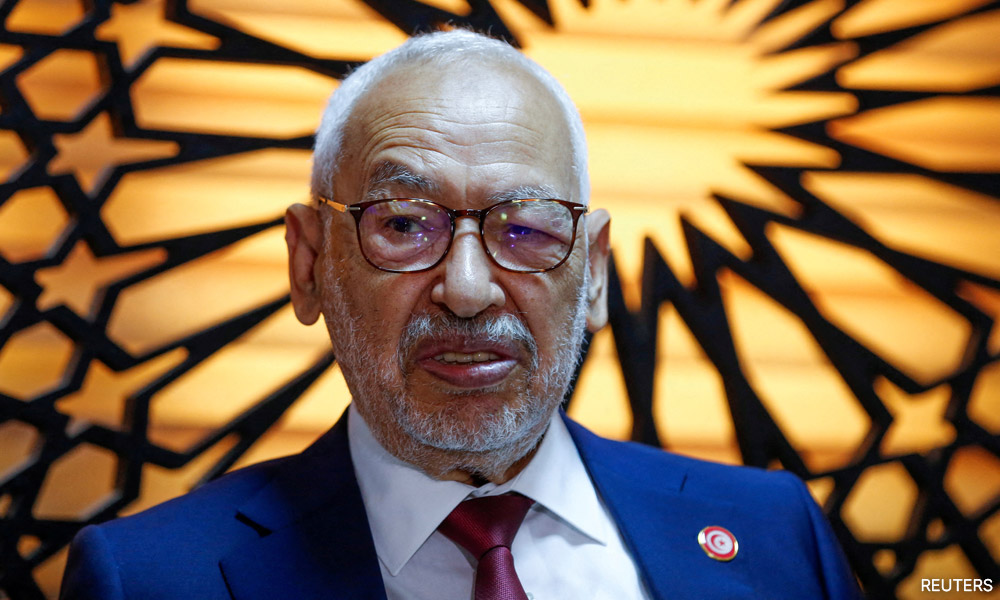The latest controversy over who was it that had made the overture to PAS to join the government will end in smoke and mirrors.
In other words, it will be an exercise in futility.
The contretemps is a distraction from what ought to be the real discussion: whether Anwar Ibrahim’s government has a better grip on how Islam is to be used in the building of civil society.
The ideological foundations for that construct can be drawn from Rachid Ghannouchi, the Tunisian who Time magazine had ranked in 2012 as one of the top 100 influential public figures in the world.
The previous year, Ghannouchi had returned to Tunisia from over two decades in exile to lead what was called the Jasmine Revolution, whose most visible feature was the overthrow of dictator Zine El Abidin Ben Ali, who had ruled for nearly 25 years.
Following his triumphant return, Ghannouchi, then the leading intellectual in the Muslim world began steering his party Ennhalda to the leadership of what came to be known as the Arab Spring, the period of ferment in the Islamic crescent that saw Ben Ali, Egypt’s Hosni Mubarak, and Libya’s Muammar Gaddafi, ejected from office.
Farther afield, the buffeting of another autocrat, Bashar Al Assad of Syria, also occurred.
Although the entire tableau of strife and unrest in the region did not eventuate in what its initial, freedom-questing stirrings heralded, it was a hopeful sign: that brutal dictatorships were going to be the order of the day in the Arab world.
Freedom and faith
So, what was to be the replacement?
As envisaged by Public Liberties in the Islamic State, a book Ghannouchi wrote in 1993, he argued that God granted Muslims and non-Muslims alike a range of liberties, including freedom of religion, the press, and property ownership.
Was he espousing Western liberalism?
Here is the surprise: Ghannouchi’s reasoning was based on faith (aqidah).

He wrote that according to Islam, no government or political party is authorised to decide things arbitrarily for its subjects.
He argued the right to interpret the scriptures is everybody’s right, and he rejected the dogma of Western-style secularism which enforces the division between politics and religion.
He argued that the French ideal of laicite - the public square being stripped of all expressions of religion - was not the pre-condition of democracy.
Instead, he argued that it is the enemy of genuine democratic self-government.
When he returned in triumph from exile in 2001, Ghannouchi declared to a mammoth crowd at Carthage airport that he was not interested in becoming another Ayatollah Khomeini.
He said: “We respect democracy without any restrictions. We honour the decision of the people whether they are for or against us.”
He said he aimed to live in a society where each and every woman enjoyed the God-given right whether or not to wear the hijab.
In the 2019 election, Ghannouchi led Ennhalda to victory in the Tunisian election and he became speaker of the assembly.
‘State security’
Sadly, Ghannouchi is now in jail in Tunisia for a year on a charge of calling another Muslim an apostate.
More ominously, more charges await him for being a threat to “state security”.
The right-wing government of President Kais Saied is moving to dismantle the foundations of Tunisia’s hard-won gains over the last decade in building a civil society.
For that, it has to put in jail its principal opponent, Ghannouchi, who is 81 and in frail health.
But where has prison been a lasting hindrance to reform and the building of a civil society?
The Islamic philosophy of Ghannouchi can be the lodestar of the government of Anwar, who incidentally is a good friend of Ghannouchi. - Mkini
TERENCE NETTO is a journalist with half a century’s experience.
The views expressed here are those of the author/contributor and do not necessarily represent the views of MMKtT.




No comments:
Post a Comment
Note: Only a member of this blog may post a comment.